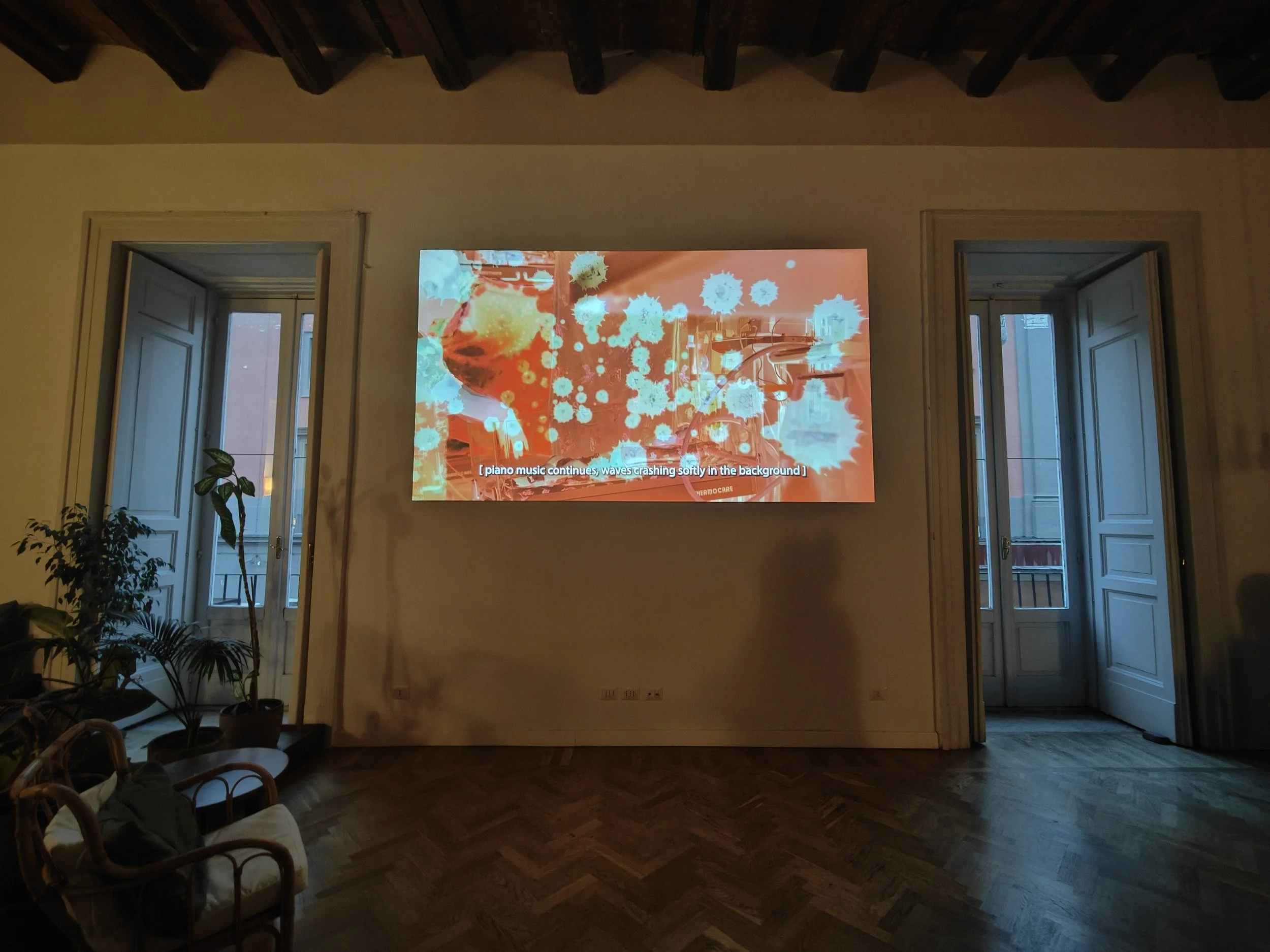
Waves Crash Softly
A sensory meditation on overload, stillness & perception
↓
A sensory video installation exploring overstimulation, sound, and embodiment
Duration: 7'41" | Format: 1920x1080, 16/9, color, stereo, suspended rear projection screen
Waves Crash Softly has been exhibited at:
– AUB BA (Hons) Fine Art Degree Show, Arts University Bournemouth, 2023
–"When roots sparkle, vibrisse sprouts", part of the VVV-R // Visualcontainer Vegapunk Videoart Residency, C/o SuperOtium, Via Santa Teresa degli Scalzi 8, Naples, Italy
– Digital Dreaming, SPUD OPEN 2023 Exhibition
Waves Crash Softly is a multi-sensory video installation investigating the relationship between sensory overload, mindfulness, and perceptual experience. The work is grounded in primary research, gathered through anonymous questionnaires from art students on the theme of sensory overstimulation.
Layering manipulated footage — including macro shots of insects, hands, feet, weather patterns, and liminal spaces — the piece explores haptic visuality (Marks, 2000), combining tactile imagery with fragmented gestures to provoke a visceral sensory response.
Sound and silence play equal roles. From diegetic thunder and rain to dissonant clicking and melodic piano, the soundscape contrasts moments of chaos with moments of calm. At times, silence takes over, leaving only closed captions — a deliberate invitation for the viewer to co-create meaning and narrative through imagination.
The research question at its core:
“Is it the visual, the sound, or both that causes sensory overload?”
The piece offers moments of internal release and grounding — particularly in the final breath-led instruction — aligning with the vision of Wild Mind Studios: to offer tools and experiences that soothe the nervous system, challenge perception, and reconnect us with the body.
Themes:
Sensory overload & neurodivergent experience
Haptic visuality
Mindfulness, calm, and overstimulation
Experimental sound & non-linear narrative
The interplay between audio-visual perception and embodied response












